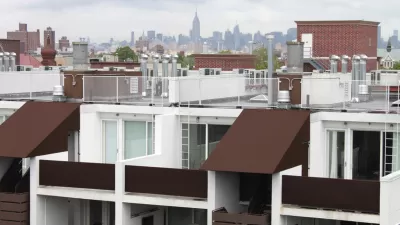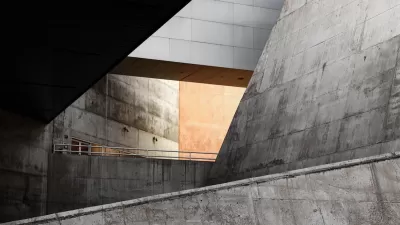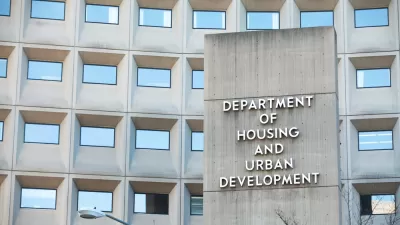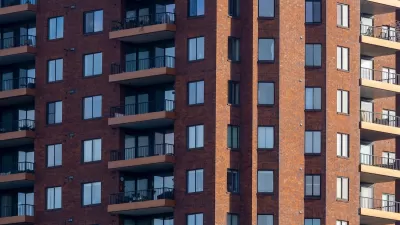A new rule will make it easier to send vouchers for rent assistance to wealthier neighborhoods. The Trump Administration is not a willing partner in this effort.

Oscar Perry Abello reports on a policy change for Section 8 rental assistance that marks a positive step for housing equity advocates. "Starting this year, local public housing authorities all over the country will be allowed to offer higher Section 8 rental assistance voucher payments to landlords in more affluent neighborhoods," according to Abello.
By changing how housing authorities calculate fair market rents, the rule change should help diffuse the concentration of Section 8 vouchers in a few low-income neighborhoods. The rule is "likely to change the makeup of neighborhoods as lower-income people gain more mobility," according to Abello, "and it’s causing a scramble among housing authorities rushing to respond to the rule."
Abello also details the history of how the new rule has proceeded under the Trump Administration, which has taken steps to dismantle tools designed to implement fair housing policies. After testing the rule in select metropolitan areas since 2012, the Department of Housing and Urban Development approved the final rule in 2016. The Trump Administration attempted to suspend the rule, but a lawsuit produced "an injunction ordering HUD to implement the rule as originally planned."
The hard work of setting up new voucher payment levels is the story now that the lawsuit has cleared the way for the rule. "The new voucher payment levels must be in place by April 1," reports Abello. "For smaller housing authorities especially, it may be an administrative burden to shift from having one voucher payment level across an entire metro to dozens, perhaps hundreds of different zip-code-based voucher levels."
FULL STORY: Facebook Twitter Email How New Rules for Section 8 Voucher Payments Mean More Mobility for Voucher Holders

What ‘The Brutalist’ Teaches Us About Modern Cities
How architecture and urban landscapes reflect the trauma and dysfunction of the post-war experience.

‘Complete Streets’ Webpage Deleted in Federal Purge
Basic resources and information on building bike lanes and sidewalks, formerly housed on the government’s Complete Streets website, are now gone.

The VW Bus is Back — Now as an Electric Minivan
Volkswagen’s ID. Buzz reimagines its iconic Bus as a fully electric minivan, blending retro design with modern technology, a 231-mile range, and practical versatility to offer a stylish yet functional EV for the future.

Healing Through Parks: Altadena’s Path to Recovery After the Eaton Fire
In the wake of the Eaton Fire, Altadena is uniting to restore Loma Alta Park, creating a renewed space for recreation, community gathering, and resilience.

San Diego to Rescind Multi-Unit ADU Rule
The city wants to close a loophole that allowed developers to build apartment buildings on single-family lots as ADUs.

Electric Vehicles for All? Study Finds Disparities in Access and Incentives
A new UCLA study finds that while California has made progress in electric vehicle adoption, disadvantaged communities remain underserved in EV incentives, ownership, and charging access, requiring targeted policy changes to advance equity.
Urban Design for Planners 1: Software Tools
This six-course series explores essential urban design concepts using open source software and equips planners with the tools they need to participate fully in the urban design process.
Planning for Universal Design
Learn the tools for implementing Universal Design in planning regulations.
City of Albany
UCLA Lewis Center for Regional Policy Studies
Mpact (formerly Rail~Volution)
Chaddick Institute at DePaul University
City of Piedmont, CA
Great Falls Development Authority, Inc.
HUDs Office of Policy Development and Research





























